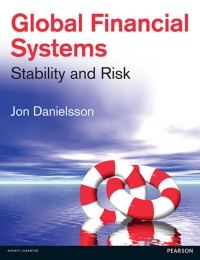Question
Answer this question from the prompt below What are the reasons given for why DuPont used trade secret to protect its process rather than using
Answer this question from the prompt below
What are the reasons given for why DuPont used trade secret to protect its process rather than using a patent? Can you think of other reasons for using trade secret in this instance?
Prompt
Excerpt from E. I. DuPont deNemours & Co. v. Christopher, United States Court of Appeals, Fifth Circuit, 1970. The defendants-appellants, Rolfe and Gary Christopher, are photographers in Beaumont, Texas. The Christophers were hired by an unknown third party to take aerial photographs of new construction at the Beaumont plant of E.I. DuPont de Nemours & Company sixteen photographs of the DuPont facility were taken from the air on March 19, 1969, and these photographs were later developed and delivered to a third party [DuPont] filed suit against the Christophers alleging that the Christophers had wrongfully obtained photographs revealing DuPonts trade secrets which they then sold to an undisclosed third party. DuPont contended that it had developed a highly secretive but unpatented process for producing methanol, a process which gave DuPont a competitive advantage over other producers. This process, DuPont alleged, was a trade secret developed after much expensive and time-consuming research, and a secret which the company had taken special precautions to safeguard. The area photographed by the Christophers was the plant designed to produce methanol by this secret process, and because the plant was still under construction, parts of the process were exposed to view from directly above the construction area. Photographs of that area would enable a skilled person to deduce the secret process for making methanol [T]he Christophers argue that for an appropriation of trade secrets to be wrongful there must be trespass, other illegal conduct We disagree another Texas court explained: The means by which the discovery is made may be obvious, and the experimentation leading from factors to presently unknown results may be simple and lying in the public domain. But these facts do not destroy the value of the discovery and will not advantage a competitor who by unfair means obtains the knowledge without paying the price expended by the discoverer We think therefore that the Texas rule is clear. One may use his competitors secret process if he discovers the process by reverse engineering applied to the finished product; one may use a competitors process if he discovers it by his own independent research; but one may no avoid these labors by taking the process from the discoverer without his permission at a time when he is taking reasonable precautions to maintain his privacy. To obtain knowledge of a process without spending the time and money to discover it independently is improper unless the holder voluntarily discloses it or fails to take reasonable precautions to ensure its secrecy. our tolerance of the industrial espionage game must cease when the protections required to prevent anothers spying cost so much that the spirit of inventiveness is dampened. Commercial privacy must be protected from espionage which could not have been reasonably anticipated or prevented. We do not mean to imply, however, that everything not in plain view is within the protected vale, nor that all information be obtained through every extra optical extension is forbidden. Indeed, for our industrial competition to remain healthy there must be breathing room for observing a competing industrialist Perhaps ordinary fences and roofs must be built to shut out incursive eyes, but we need not require the discoverer of a trade secret to guard against the unanticipated, the undetectable, or the unpreventable methods of espionage now available. In the instance case DuPont was in the midst of constructing a plant. Although after construction the finished plant would have protected much of the process from view, during the period of construction the trade secret was exposed to view from air. To require DuPont to put a roof over the unfinished plant to guard its secret would impose an enormous expense to prevent nothing more than a school boys trick. We introduce here no new or radical ethic since our ethos has never given moral sanctuary to piracy. The market place must not deviate far from our mores. We should not require a person or corporation to take unreasonable precautions to prevent another from doing that which he ought not to do in the first place.
Step by Step Solution
There are 3 Steps involved in it
Step: 1

Get Instant Access to Expert-Tailored Solutions
See step-by-step solutions with expert insights and AI powered tools for academic success
Step: 2

Step: 3

Ace Your Homework with AI
Get the answers you need in no time with our AI-driven, step-by-step assistance
Get Started


